Extinct species news, features and articles
Latest about Extinct species

Ancient shark discovered deep inside world's longest cave system
By Patrick Pester published
The National Park Service has announced another ancient shark discovery at Mammoth Cave in Kentucky. The latest find, named Macadens olsoni, had a unique curved row of teeth and lived around 340 million years ago.
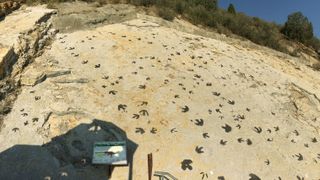
T. rex relatives 'moonwalked' to attract mates, newfound dinosaur ‘mating arena' suggests
By Patrick Pester published
Researchers have identified a "mating arena" at Dinosaur Ridge where male theropods gathered during the Cretaceous period to display in front of females.
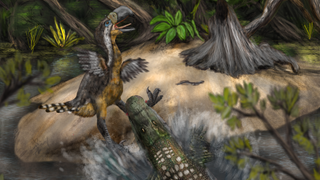
Bite marks reveal giant terror birds were potentially prey for another apex predator — humongous caiman
By Patrick Pester published
Researchers have found evidence of a titanic tussle between a terror bird and a large caiman in Colombia's ancient La Venta wetlands.
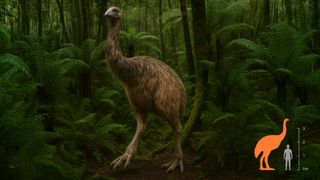
Why giant moa — a bird that once towered over humans — are even harder to de-extinct than dire wolves
By Patrick Pester published
Colossal Biosciences has announced a partnership to resurrect giant flightless birds called moa. But the company's recent dire wolf project was controversial, and moa are an even more ambitious target for de-extinction.
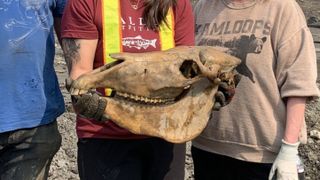
'Beautifully preserved' ice age horse skull unearthed in Yukon mine
By Sascha Pare published
New pictures taken in Yukon, Canada, show a perfectly preserved fossil skull, which experts say belonged to a male, teenage horse that lived during the last ice age.
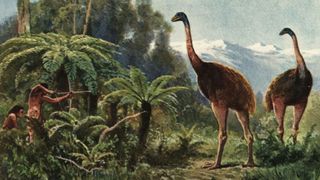
'We're bringing back avian dinosaurs': De-extinction company claims it will resurrect the giant moa in next 10 years
By Sascha Pare published
The South Island giant moa could be the next species that biotech company Colossal Biosciences "brings back" from extinction — but experts say the result will not and "cannot be" a moa.
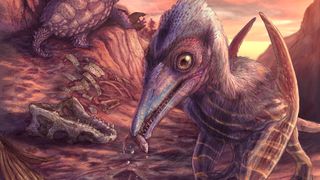
'Ash-winged dawn goddess' is oldest pterosaur ever discovered in North America — and it was small enough to sit 'on your shoulder'
By Patrick Pester published
A cache of Triassic fossils in Arizona has revealed Eotephradactylus mcintireae, or "ash-winged dawn goddess," the oldest pterosaur ever discovered in North America.

'It's how I would imagine I would react if I saw a real-life giant dinosaur': What Jurassic World Rebirth's scientific advisor thinks of the movie
By Hannah Osborne, Laura Geggel published
The summer blockbuster Jurassic World Rebirth is hitting theaters, so Live Science asked paleontologist Steve Brusatte what it's like being the movie's scientific advisor.
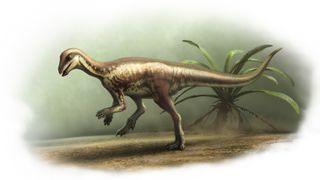
Mysterious 'runner' dinosaur a sign there are more Jurassic secrets to unlock beneath western US
By Patrick Pester published
The discovery of Enigmacursor mollyborthwickae, a dog-size "runner" dinosaur, has left researchers re-evaluating Nanosaurus and several other US dinosaurs from the Morrison Formation in Colorado.

'Statistically, that shouldn’t have happened': Something very weird occurred in the ocean after the dinosaur-killing asteroid hit
By Stewart Edie published
Not everything dies in a mass extinction. Sea life recovered in different and surprising ways after the asteroid strike 66 million years ago. Ancient fossils recorded it all.
Get the world’s most fascinating discoveries delivered straight to your inbox.
 Live Science Plus
Live Science Plus










